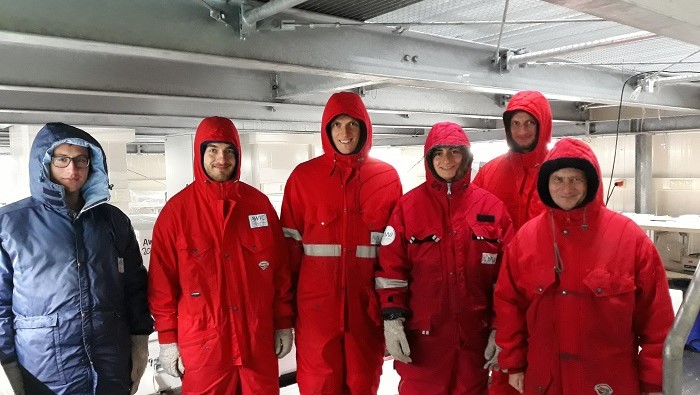Experience climate research up close at -20°C
Icy cold spread when the participants of the course "Mathematical Modeling for Climate and Environment" entered the ice laboratory at the Alfred Wegener Institute. At -20°C and in full gear of a polar researcher, the Bayreuth students got an introduction to glaciological research methods. During the ice laboratory tour, Dr Damiano Della Lunga explains challenges in the recovery of ice cores from kilometer-deep drilling, state-of-the-art data analysis methods or the way from measured values via ice models to findings about climate change.
The exciting tours were only one part of the excursion. With eight hours of lectures and talks on climate modeling held daily with the participation of AWI scientists and doctoral students from the POLMAR program, the excursion was anything but relaxing. However, this did not detract from the motivation, as Martin Clemens, master student of Scientific Computing, reports: “It is simply fascinating to see how scientists, of whom until now only an image of films may have been made, actually work. ... It was also great that we had the opportunity to speak to the speakers personally and to ask them questions."
Shipping history in Bremerhaven
Bremerhaven is a city that is historically shaped by shipping. By visiting the German Maritime Museum, the group around Prof. Aizinger let briefly digress their thoughts on mathematical climate modeling and gain new cultural impressions.
Text: Maximilian Bauer, Elite Graduate Program "Scientific Computing"


